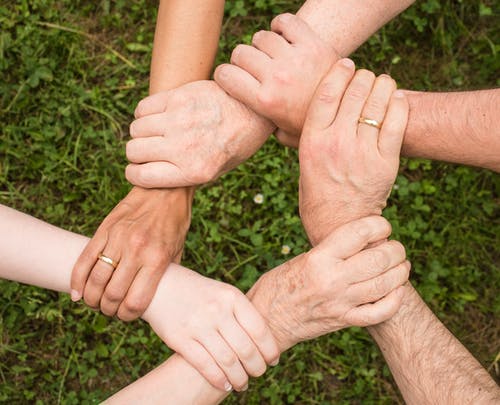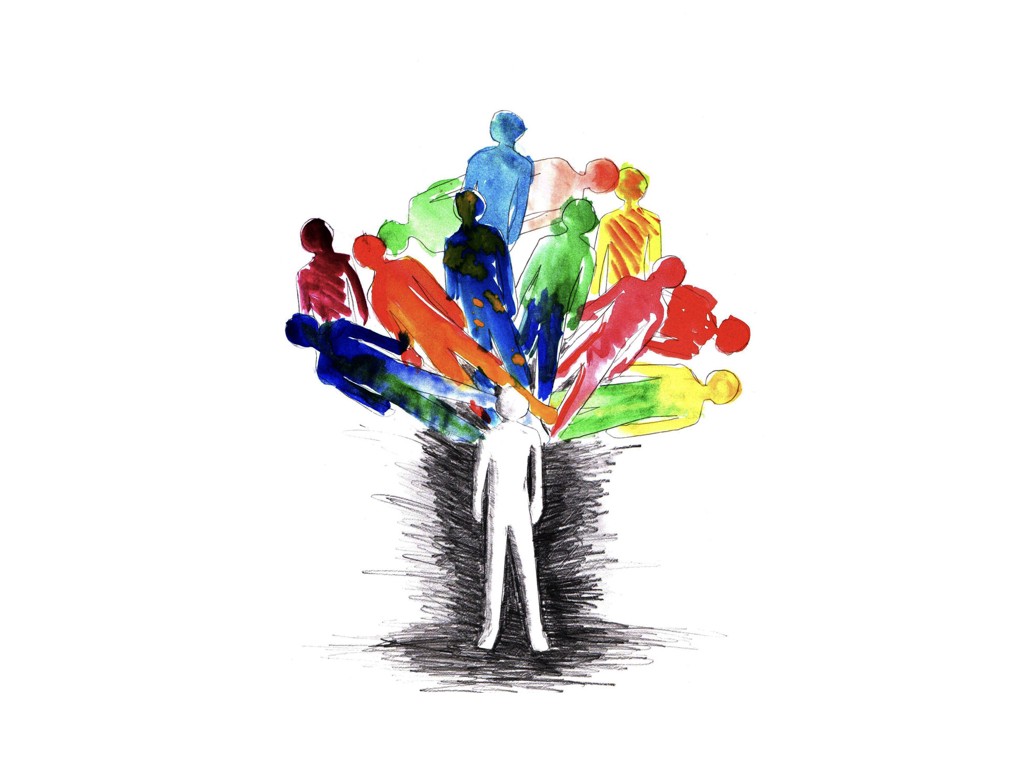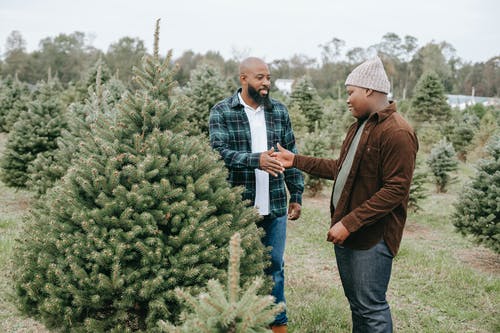Who Do You Trust?
Trusting In Life Is A Choice
Your Choice Creates Your Reality

What Becomes Of The Broken Hearted?
Who do you trust? Nothing in life is permanent and nothing lasts forever.
Every relationship ends in tears.
Somebody leaves or somebody dies.
This is how things are.
This is the nature of things.
Nobody has the perfect life.
When I was 21 my fiancee left me and went off with another man. Naturally I was devastated. But I do recall having one significant insight.
I realised that I had a choice, either I could carry the hurt and feeling of betrayal from this broken relationship and allow it to diminish my trust in all subsequent relationships with women, or I could learn from my mistakes in this relationship, accept the situation and then it all go.
I chose the latter option.
Everything is dependent upon other things. Buddhists refer to this as dependent origination. Relationships do not exist in a vacuum. Your relationships with other people exist in your thoughts and feelings. They are mental and emotional constructs and you can change them.
Who Do You Trust In Life?

Throughout my life I have always worked on the basis that I will assume that other people are trustworthy until they show that they are not.
Sure, people often do not do what I want them to do, they do not know as much as they think they do and they can disappoint me, but in my experience this trust strategy has proven successful and I have had remarkably few instances where people have broken my trust.
In my lived and observed experience:
Your inner game is reflected in your outer experience.
There really does seem to be a direct causal link between your beliefs and attitudes about life, and especially how you see yourself, and how people treat you. People take you at your own valuation of yourself.
If you are trusting of other people life reflects that trust back to you in the behaviour of other people towards you.
[A quick caveat: we are talking the general rule here. There are always exceptions to the general rule. There are some bad people out there who's sole intent is to harm you in one way or another. Bad things do happen to good people. No one is immune. ]
How and why does a high-trust approach to life seem to work?
My personal take on this is that there are two connected factors at work here:
[1] Your Point Of Focus
Your point of focus will have a powerful effect on your experience of life, and specifically whether you are focused on what you do want, or whether you are focused on what you don't want. Either way, whatever you are focused on, you will get more of it.
What you focus on grows.
[2] Your Dominant Emotional State
The dominant emotional/energetic states associated with your primary point of focus are influencing your life and either helping you or hindering you. We live in an energetic universe and it's not neutral, it is a participatory universe.
Over time, your dominant emotional state, becomes your reality.
A lot of people are slow to trust.
Very few people seem to understand that whilst a low trust approach to life may protect you from loss and damage it severely limits your upside.
Shane Parrish of Farnham Street argues the case in "Tiny Thought":
"Most of the time people deserve to be trusted by default. Perhaps 3% of the time they take advantage of you and make you look foolish. In an effort to avoid what happens 3% of the time, people forgo asymmetric upside.
I’m pretty trusting by default. And while some people have taken advantage of me, I still prefer my approach because there is no ceiling on what’s possible. The three largest business deals of my life have all been high-trust deals."
Bono in "Bono on Bono":"Trust is very important to me.
If you trust people you're going to get burnt 10% of the time. I'm quite a trusting person; however ten per cent of the time, you're going to find yourself in situations that you wouldn't have if you had been more cautious.But you're also gonna find yourself in very good situations that you wouldn't have, unless you took the risk."
Trusting Your Selves

So far we have considered the question of "Who do you trust?" in relation to other people, and we have noted that your inner game is reflected in your outer experience.
But there is another dimension to this inner game and this is all about your level of trust within your selves.
To spin that around, it may be that are areas in your life where you find it difficult to trust people and these are a projection of a lack of trust experienced within one or more of your selves.
We are not talking about building and exercising self-confidence here. Although of course that is a worthwhile activity.
This is not about believing in your selves - this is about trust within your selves.
In Self Dialogue we discussed how that when you conventionally refer to "myself" you are not referring to one singular entity but a very complex amalgam of many different aspects of your "self".
These are sometimes referred to as the internal family of selves - also known as "sub-personalities".
Your selves are often in conflict with each other, and much of this internal interaction and conflict is outside of your conscious awareness.
One of the most common areas of lack of trust lies within what is often referred to as your "inner child".
If you experienced things that betrayed your trust when you were a small child, and if those feelings have not been acknowledged and addressed, they can have a big impact on your capacity for trust as an adult.
Extreme examples of this betrayal of trust would include various forms of physical and emotional abuse. But there can be many of other forms of betrayed trust such as unmet needs.
For example, when I was a small child my relationship with my father was sometimes physically abusive with harsh forms of corporal punishment and it was generally not an emotionally intimate father-son relationship. I never felt loved by my father. I understood mentally that he did love me, but I never felt it as a child.
Over the years I have done a lot of work on "myself" and worked through these issues and released the pain. But despite having done all this I have been left with a feeling of emptiness in that part of me.
The effect of this has been that for nearly my whole adult life I have never felt able to trust my higher self - mentally I could, but never as a felt sense.
My higher self always felt cold and distant. This changed a couple of years ago when I unexpectedly experienced a significant shift in the form of an inner spiritual healing.
Now I can feel a sense of warmth and love towards [or from] my higher self. It has become a much more trusting and intimate relationship. But it has taken me a very long time [over 60 years] to get to this point.
There are extensive resources on this site for assisting with you developing and increasing your self awareness and I refer you again to the recent article on self dialogue - dealing with your many selves.
Choosing To Trust

However you look at it, to trust or not to trust is a choice.
- Do you trust life?
- Do you feel this is a safe place?
- Do you believe you’re here for a reason?
- Do you feel that life is guiding you through a series of challenges to help you grow?
- Do you feel that life rewards you for trusting it?
- Or do you distrust life?
- Do you cling to your comfort zone, throw up your shields, and decline the challenges that are right in front of you?
If you choose to trust life in the deepest possible way, you’ll eventually reframe every life experience to reinforce this trust.
Your most painful setbacks will become growth lessons.
Your decision to
trust life will create the corresponding reality.
I once described a personal experience of this as like having a big red carpet unrolling in front of me and all I had to do was keep moving fast enough to keep up with it!
Next Article:
How Positive Asymmetry Can Transform Your Life
Return from "Who Do You Trust" to: Walking The Talk
LATEST ARTICLES
Does Prayer Work? The Psychology of Prayer, Meditation and Outcomes
 Reality Is A Complex System Of Countless Interactions - Including Yours. So does prayer work? The problem is that the question itself is usually framed in a way that guarantees confusion. We tend to a…
Reality Is A Complex System Of Countless Interactions - Including Yours. So does prayer work? The problem is that the question itself is usually framed in a way that guarantees confusion. We tend to a…Living in Survival Mode Without Surrendering Mental Authority
Living in Survival Mode Without Surrendering Mental Authority
 Clear Thinking When You’re Just Trying to Stay Afloat. Many people today are overwhelmed because they are living in survival mode - not temporarily, but as a persistent condition of life. For many, th…
Clear Thinking When You’re Just Trying to Stay Afloat. Many people today are overwhelmed because they are living in survival mode - not temporarily, but as a persistent condition of life. For many, th…Manifestation Without Magic: A Practical Model
 Manifestation without magic is not a softer or more intellectual version of popular manifestation culture. It is a different model altogether. Popular manifestation teachings tend to frame reality as…
Manifestation without magic is not a softer or more intellectual version of popular manifestation culture. It is a different model altogether. Popular manifestation teachings tend to frame reality as…Staying Committed When You Can't See Progress - The Psychology of Grit
 Uncertainty Is Not The Absence Of Progress, Only The Absence Of Reassurance. One of the most destabilising experiences in modern life is not failure, but uncertainty and staying committed when you can…
Uncertainty Is Not The Absence Of Progress, Only The Absence Of Reassurance. One of the most destabilising experiences in modern life is not failure, but uncertainty and staying committed when you can…The Battle For Your Mind - How To Win Inner Freedom In A Digital Age Of Distraction
 From External Events to Inner Events. We often think of “events” as things that happen out there: the traffic jam, the rude comment, the delayed email reply. But what truly shapes our experience is wh…
From External Events to Inner Events. We often think of “events” as things that happen out there: the traffic jam, the rude comment, the delayed email reply. But what truly shapes our experience is wh…How to See Your Thoughts Without Becoming the Story
 A Practical Guide to Thought-Awareness. You can spend your life inside the stories of your mind without ever learning how to see your thoughts clearly and objectively. Most of the stuff we tell oursel…
A Practical Guide to Thought-Awareness. You can spend your life inside the stories of your mind without ever learning how to see your thoughts clearly and objectively. Most of the stuff we tell oursel…The Collison Decision Matrix - A Simple Framework for Better Choices
 The Collison Decision Matrix Is A Practical Everyday Thinking Tool. Most of us spend a surprising amount of time worrying about decisions. From small ones such as what to wear, what to eat, what to te…
The Collison Decision Matrix Is A Practical Everyday Thinking Tool. Most of us spend a surprising amount of time worrying about decisions. From small ones such as what to wear, what to eat, what to te…The Power Of Asking The Right Question
 The Power Of Asking The Right Question Lies In The Quest For Insight. To experience the power of asking the right question you must develop the practice of asking questions. The best way to improve th…
The Power Of Asking The Right Question Lies In The Quest For Insight. To experience the power of asking the right question you must develop the practice of asking questions. The best way to improve th…Site Pathways
 Here is a site pathway to help new readers of Zen-Tools navigate the material on this site. Each pathway is based around one of the many key themes covered on this site and contain a 150 word introduc…
Here is a site pathway to help new readers of Zen-Tools navigate the material on this site. Each pathway is based around one of the many key themes covered on this site and contain a 150 word introduc…How To Live With Contradiction - Beyond Thought Let Stillness Speak
 A major impact on so many peoples' lives is the situational contradiction of unfilled realistic expectations. So where does all this leave us? Well here we are, with mental equipment that is more lim…
A major impact on so many peoples' lives is the situational contradiction of unfilled realistic expectations. So where does all this leave us? Well here we are, with mental equipment that is more lim…How To Trust The Process Of Mindfulness - Right Now
 In mindfulness, the process isn’t some distant goal — it's what is happening right now. When we talk about how to trust the process of mindfulness the credibility of the process is heavily dependent…
In mindfulness, the process isn’t some distant goal — it's what is happening right now. When we talk about how to trust the process of mindfulness the credibility of the process is heavily dependent…